Replacing the front crankshaft seal
A sign of the need to replace the front crankshaft oil seal is an oil leak through its edge
Oil is splattered by the rotating crankshaft pulley, leaving the entire front of the engine and engine compartment oiled.
Engine and transmission oils differ in smell, so with a certain skill it can be used to determine which of the oil seals is defective.
There is another way to determine the type of oil. Drop oil into water poured into a vessel with a thin layer (possibly in a puddle).
The gear oil will spread over the entire surface of the water in the form of an iridescent film, and the engine oil will remain in the form of a drop similar to a lentil grain.
Before replacing the front crankshaft oil seal in the event of a leak, check the cleanliness of the crankcase ventilation system, as if it is clogged, the increased gas pressure in the crankcase causes a leak even with a good oil seal.
Remove
Remove the radiator of the cooling system
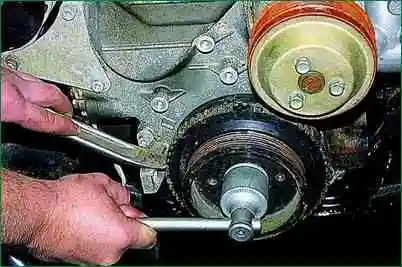
Using the “36” head, unscrew the bolt securing the crankshaft pulley. We keep it from turning with a screwdriver inserted between the teeth.
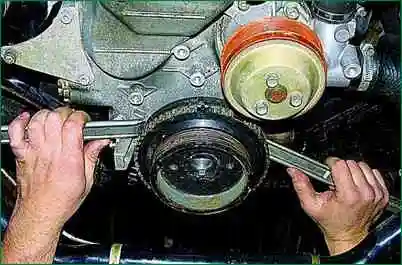
Using two mounting blades, we evenly press the crankshaft pulley from the front cover of the cylinder block
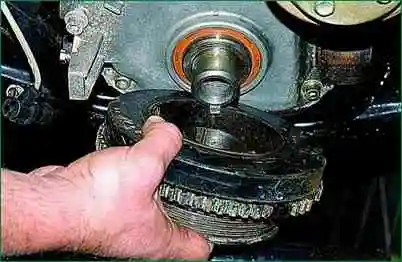
Remove the pulley.
Sometimes the pulley is pressed very tightly, so it is not possible to remove it with mounting blades.
In this case, you will have to use a universal puller
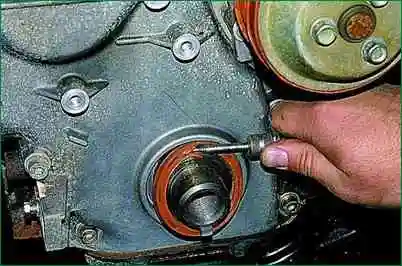
Prying off with a screwdriver, remove the cuff.
Having filled two-thirds of the cavity between the working edge and the anther of the new cuff with Litol-24 grease, we press it into place, using the old cuff as a mandrel
Replacing the rear crankshaft seal
A sign of the need to replace the crankshaft rear oil seal is an oil leak through its edge.
Oil is sprayed by the rotating flywheel inside the clutch housing and then flows out through the slots between the clutch housing and clutch booster.
At a strong leak, the lining of the clutch disc may become oily and, as a result, the clutch will slip.
The reasons for the oiling of the clutch discs and the leakage of oil from the clutch housing may be the leakage of the oil seal of the input shaft of the gearbox.
Remove the gearbox
Remove the clutch housing
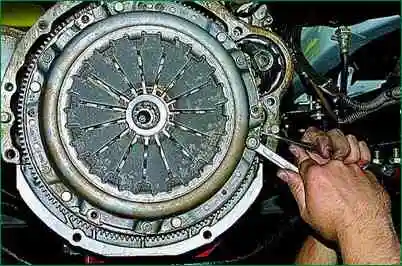
Using the “12” key, we unscrew the six bolts of the clutch pressure plate, holding the flywheel from turning with a screwdriver inserted between its teeth.
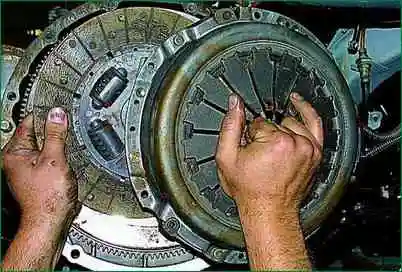
Remove the driven and pressure discs.
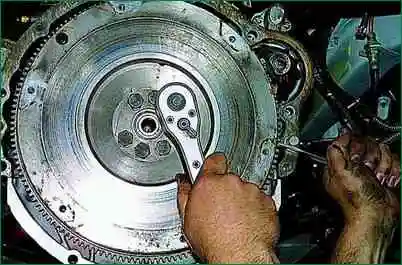
With a “17” head, we unscrew the six bolts securing the flywheel, keeping it from turning with a screwdriver inserted between the teeth.
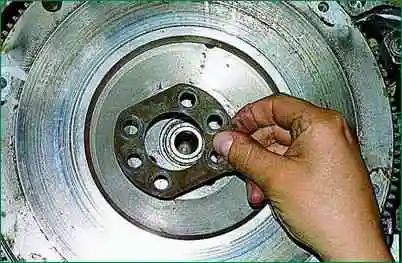
Remove the washer.
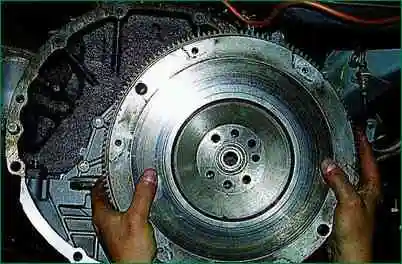
Remove the flywheel
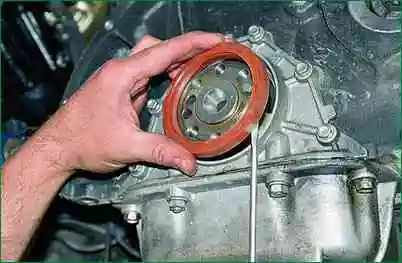
Prying with a screwdriver or punching it with a beard, remove cuff
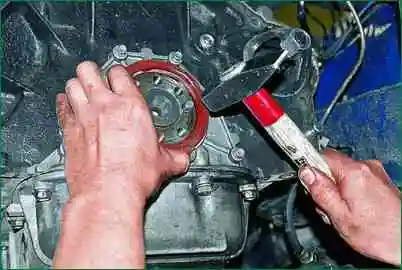
Having filled two-thirds of the cavity between the working edge and the anther of the new cuff with Litol-24 grease, we press it into place, using the old cuff as a mandrel.
We install the removed nodes in the reverse order.





